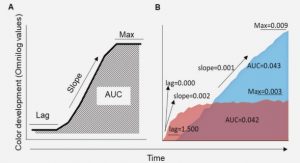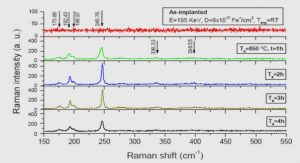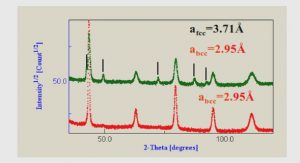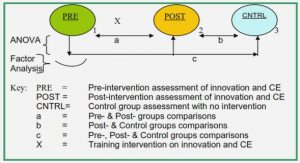Get Complete Project Material File(s) Now! »
CHAPTER 2 THE ROLE OF HEADS OF CHRISTIAN ORGANISATIONS ON RECONCILIATION, LIBERATION AND NATIONAL HEALING IN ZIMBABWE
INTRODUCTION
The researcher in this chapter seeks to make an assessment of the existing literature using a thematic organizational format to Literature Review. Issues of liberation, reconciliation and national healing are going to be discussed from a theological point of view. Technical terms such as, healing and reconciliation are going to be defined and their significance spelt out. The history of the Heads of Christian Organizations in Zimbabwe will be obtained from the constitutions or documentary records of this institution. Issues of national healing and reconciliation will be explored from a historical and theological perspective, as well as, from the use of external sources. This is relevant in Zimbabwe today following the appointment of the National Healing and Reconciliation Commission on 8 March 2016. For Zimbabwe, quite a number of writings have been published but still there is need to deepen the contextual relevancy of the subject, as well as bridge the knowledge gaps between the academia and the practitioner of the process. Many books and articles have been published on this subject but there is need to contextualise this study in relation to what has been researched on prior to this study, recognising any convergence or divergence of ideas in order to address the knowledge gaps. The position of the researcher relative to the literature will be established.
THE BRIEF BACKGROUND ON THE ROLE OF CHRISTIAN ORGANISATIONS ON ZIMBABWEAN SITUATION
In this section, a brief background of the Zimbabwean situation will be highlighted and discussed intensively. The prophetic witnesses in Zimbabwe will be discussed. Moreover, the relationship between church and state will be discussed focusing on African in general and Zimbabwe in particular. The section will also focus mainly on church and state.
Prophetic witnessing as one of the functions of the Church
From time immemorial, religion and politics have been closely related to each other. Religion intervenes in politics, and in many cases, religion colludes and shows complicity with the state authority. Johnstone (1988:122) says:
Inasmuch as both religion and politics are social institutions and consist of sub-groups, norms, and people, they interact with one another; they sometimes overlap in their functions; they often involve the same people; they seek commitment and involvement from the same people.
According to Carl and Moyo (1998:74-79), church and state relations in many African countries date back to the colonial period. In Zimbabwe and some other African nations, the Christian Church has played a pivotal role.
Sachikonye (2012:148) asserts that Zimbabwe is a society that has experienced both political violence between rival parties and state violence against civilians for at least half a century. The church through such bodies as the Catholic Commission for Justice and Peace in Rhodesia (CCJPR now CCJPZ) was pivotal in collecting and disseminating information about human rights violations and the killing of innocent citizens during the civil war. Sachikonye (2012:148) assists in highlighting how the State’s armed forces trampled on basic human rights, tortured, maimed and killed thousands of civilians, in their war against “dissidents” (Sachikonye, 2012:148).
Mukonori (2012:175) postulates that, the ten years before and after independence in Zimbabwe, negatively affected the Matabeleland and Midlands provinces. The decade prior to independence witnessed an increasingly fierce fighting of liberation, whilst the period after independence caused further hardships and suffering in Matabeleland and in parts of the Midlands through gukurahundi. The people in those provinces, who had survived the protracted war of liberation, soon faced yet another orgy of violence, this time being perpetuated by their own government. It was a matter of being thrown out of the pan into the furnace (Mukonori, 2012:75). The Matabeleland people still feel that national healing and reconciliation has not been achieved. The affected people are physically, psychologically and emotionally traumatised even to this day. This pain is inflicted upon them by the ZANU PF government. It is most likely that if the unhealed pains are left untreated are a time-bomb that will explode sooner or later.
Kaulemu (2011:101) indicates that the crisis in Zimbabwe is caused by our political leaders who refuse to publicly accept that the Zimbabweans are in a crisis. When they do, they describe it in ways that exonerate Zimbabweans, from taking full responsibility to resolve their crisis. What Kaulemu is saying is that, if we first accept that we are in a crisis, we will then have the task of identifying the challenges and correct them. This identification will then lead to proper diagnosis being done. Since Zimbabwe is at crossroads, hopes of sovereignty and development are yet to be fulfilled. It is therefore critical to use the above writings to see how best Zimbabwe can move forward.
Aderibigbe and Aiyegboyin (1997:7) claim that, religious conviction is vital in the lives of people. Religious convictions are well-known, and their multidimensional presence world-over cannot be ignored. Strenski, (2006:44-60) quoted a sociologically based definition of religion by Emile Durkheim, which viewed “religion as a unified system of beliefs and practices which unite into one moral community. It also suggests a religious origin to socio-political associations with their set of rules and regulations”.
Ellis and Gerrie (1998:184), assert that religious groups can fall into the danger of being inward-oriented or outward-oriented. An inward oriented religion usually concentrates on the spirituality and worship of an individual. These types of people usually divorce themselves from social activities like voting during elections. On the other hand, an outward-oriented religion is fully active in social issues and such types of people actively participate in politics. The relationship between politics and religion is seen in that religion gives morals to its adherents. The Bible for Christians, Koran for Muslims gives believers a set of morals to be followed (Love 2006: 621). On the other hand, politics is viewed as the acquisition and use of power. As such, politics deals with issues of governance and how the leaders obtain votes.
Love’s (2006:621) definition of politics concurs with the one given by Nkem Onyekpe. Onyekpe (1998:16) defines the term politics as the struggle for power, which itself is the authority to determine or formulate and execute decisions and policies. These decisions and policies must be accepted by the society and it is the struggle for power of governance, especially executive authority. However, Onyekpe (1998:16) gives a caveat to the first part of his definition. According to him, the struggle for or the acquisition of power and the reaction of the society to it, depend greatly on the level of political development of the country. In an undemocratic society, it does not really matter whether the decisions and policies are accepted by the society. Thus, the value of political power or politics leaves little or no room for the people to have input, except where democracy has already been entrenched (Nkem Onyekpe 1998:16). The same sentiments were shared by Philpott (2007:511) when he says, the relationship between politics and religion is best analysed in the way how religion can strongly influence which party a person votes for, and even campaigns for, and on the religious end, political views can play a major role in religious conversion. In other words, it is not uncommon for people to change religions or denominations in order to find beliefs fit for their political affiliations (Philpott, 2007:511). For example, when one stays within a Christian community, the assumption is that the Christian beliefs will influence and shape the community’s view and understanding of life. This is irrespective of whether the people become Christians or not. There is a contagious effect in churches, where the views of church members and church leaders influence other members’ actions and beliefs (Gilbert 1993:1).
Chitando and Manyonganise, (2011) claimed that the 1960s and 1970s war of liberation in Zimbabwe divided the Church. This is seen in that, for others, institutional racial discrimination warranted the taking up of arms. The war was justified on the basis that, it has to deal with wicked and obscene system. Some people believed that the church was supposed to be holy, leaving a peaceful life and condemning violence and these people condemned the church for involving itself in the struggle for liberation. Chitando and Manyonganise, (2011) examine the response of the Church in Zimbabwe to the 2008 political crisis that was precipitated by violence, economic decay and social strife. They explored Church-State relations in Zimbabwe stressing the serious waves of violence following Mugabe’s defeat at the 2008 polls. Mugabe and his henchman resorted to naked violence.
On the challenges accompanying the Churches engagement with the political crisis, Chitando and Manyonganise (2011:13) argued that Zimbabweans could literally not sing the Christian songs in their own homes, as state agents and the police brought political divisions right into the holy grounds of the church. The Zimbabwean crisis had serious effects even in the sacred sphere. Chitando and Manyonganise (2011:14) argue that preaching in many congregations continued to be heaven centred instead of seriously speaking against issues of political violence which are an essential part of the mission-Dei (mission of God). Theological inflexibility forced the Church to neglect its social responsibility by focusing on the next world. The church became other-worldly; it was nowhere to be found for it was supposed to be the voice for the voiceless by challenging the State on political violence. However, the article did not focus on any particular denomination.
Togarasei (2009:149) argues that, “throughout the history of the Church, the Bible has been read and interpreted to address the existential needs of the Christian community. It has been used to justify slavery, to stop slavery, to justify colonialism, to fight for liberation and even to justify apartheid, as memories of apartheid South Africa tell.”
As such, the Holy book (Bible) can best be termed an all-weather book but the bible need not to be a thermometer but thermostat, it must not only read the temperature without changing it, it must read and change the temperature like the thermostat does. During the 2000 land reform programme, people looked into the Bible for direction. According to Togarasei (2009:149-150), issues of Church tradition were ignored the Church, as a community, the Church re-read the Bible, the Bible becomes central in their teachings. Furthermore, Togarasei (2009:150) argues that, even though the church did not publicly comment on the land reform, congregants in different churches deliberated about the land reform programme at different meetings. The land reform programme was fast tracked by the Zimbabwe’s government and farms were violently invaded. Many unemployed youths joined in the invasion of farms, beating up white farm owners without even understanding what they were doing. Togarasei (2009:149-150) provides an interpretation of the Bible that will assist in assessing the possibility of authentic liberation, reconciliation and national healing of political issues in Zimbabwe. It will be important to link the church and state in general to the African perspective on church and state relationship, because African people have the way they think in all spheres of life.
Africa’s perspective on church and state relations
Schreiter and Jorgensen (2013), claim that, there is hope, for the Christian gospel is a significant contributing force to the quest for justice, peace and reconciliation. The Gospel is that the Kingdom of God has come near (Mark 1:15). Witnessing to the Gospel is inseparable from the daily witness Christians are called to give in solidarity and unity for the common good. But sin denies the worth and dignity of human beings, disrupts community, and hampers the flow of life. The sin of human beings contributes to, and belongs within, a wider context: a disorder which affects the whole of creation. Paul expresses this graphically: “The whole creation has been groaning and labours with birth” (Rom 8:22-24). In this context, giving birth can be seen as an aspect of healing. Christians are called to be a healing and reconciling community. Most of the earlier theological literature on reconciliation focused on what has been called the “vertical” dimension of reconciliation, that is, God’s reconciliation with humanity. Indeed, this vertical dimension constitutes the central Christian narrative of what God has done for humanity.
For many Africans, Christianity shapes people’s thinking. What this means is that, the Church has the power to influence the socio-political and economic environment of any nation. Lenski (1963:247) argues that the church is vital in that it functions as a “playing ground” to educate and equip people so that they participate in different worldly organisations. The same sentiments are also echoed by Verba et al, (1995:282) who says, “Religious organizations provide critical public skills, which will later give birth to political activity.” Furthermore, apart from the skills that one gets from Church, religious institutions nurture worldly undertakings by means of networking. Greeley, (1997:67), postulates that it is from the Church that people are taught about secular volunteering. As seen here, the church is playing an important role in encouraging its members to be actively involved in social voluntary activities.
CHAPTER 1 INTRODUCTION AND ORIENTATION
1.1 INTRODUCTION
1.1.2 Approach in the Research Study
1.2 RESEARCH PROBLEM STATEMENT
1.3 RESEARCH QUESTION
1.4 RESEARCH AIMS
1.5 HYPOTHESIS
1.6 METHOD OF RESEARCH
1.7 SUMMARY
CHAPTER 2 THE ROLE OF HEADS OF CHRISTIAN ORGANISATIONS ON RECONCILIATION, LIBERATION AND NATIONAL HEALING IN ZIMBABWE
2.1 INTRODUCTION
2.2 THE BRIEF BACKGROUND ON THE ROLE OF CHRISTIAN ORGANISATIONS ON ZIMBABWEAN SITUATION
2.3 RECONCILIATION IN THE CONTEXT OF ZIMBABWEAN CHURCH AND SOCIETY .
2.4 HEALING THE WOUNDS IN THE CHURCH AND SOCIETY IN ZIMBABWE
2.5 THE ROLE OF THE CHURCH IN SOCIETY
2.6 THE WOUNDEDNESS OF THE NATION IN POST-COLONIAL ZIMBABWE
2.7 THE ROLE OF CHURCH IN RECONCILIATION AND HEALING IN ZIMBABWEAN
SITUATION
2.8 Summary
CHAPTER 3 RESEARCH DESIGN AND METHODOLOGY
3.0 INTRODUCTION
3.1 RESEARCH METHODOLOGY
3.2 RESEARCH DESIGN
3.3 Liberation, Political and feminist theologies and the Zimbabwean situation
3.4 The Phenomenological approach
3.5 The historical criticism method
3.6 The social constructivism in the light of the Bible
3.7 RESEARCH INSTRUMENTS
3.9 SAMPLING PROCEDURE
3.10 The Basic Models of Church State Relations
3.11 Validity and Reliability
3.13 Analysis and Interpretation of data
3.14 Summary
CHAPTER 4 THE WOUNDEDNESS OF THE ZIMBABWEAN POPULACE AND THE ROLE PLAYED BY HEADS OF CHURCHES
4.1 Introduction
4.2 THE PRESENTATION OF DATA WILL BE ON POLITICAL SITUATION IN ZIMBABWE
POST-COLONIAL GOVERNAMENT
4.3 PRESENTATION OF DATA ON HEAD OF THE CHURCHES IN ZIMBABWE
4.4 Summary
CHAPTER 5 HOLISTIC APPROACH TO LIBERATION, HEALING AND RECONCILIATION AS THE PROPOSAL FOR ZIMBABWEAN SITUATION
5.1 INTRODUCTION
5.2 A HOLISTIC APPROACH TO LIBERATION, HEALING AND RECONCILIATION
5.3 The Challenge: the Church in Zimbabwe in address
5.4 THE CHURCH AS ROLE PLAYER IN LIBERATING, RECONCILING AND HEALING
PROCESS
5.5 SUMMARY
CHAPTER 6 SUMMARY, FINDINGS, RECOMMENDATIONS AND CONTRIBUTION
6.1 INTRODUCTION
6.2 SUMMARY OF THE RESEARCH STUDY
6.3 FINDINGS BASED ON THE RESEARCH AIMS
6.4 AIMS OF PERPETUATING POLITICAL VIOLENCE
6.5 The Challenge
6.6 FINDINGS: HEARING THE PREFERENCES OF THE VICTIMS
GET THE COMPLETE PROJECT






